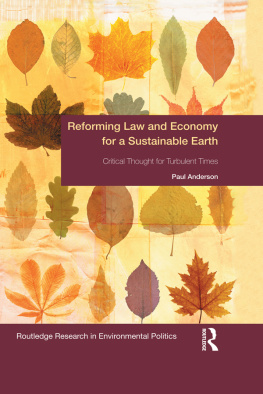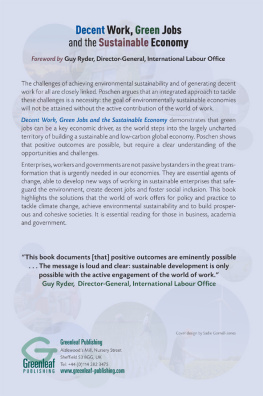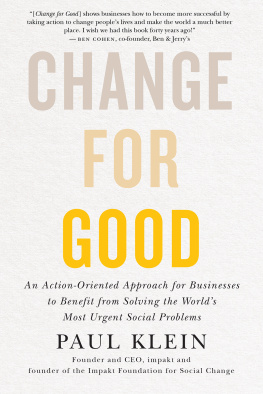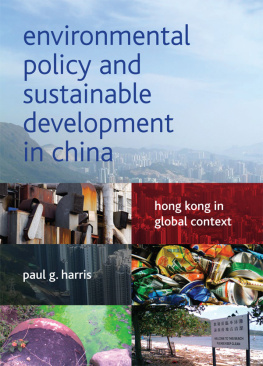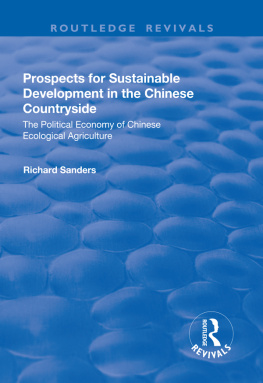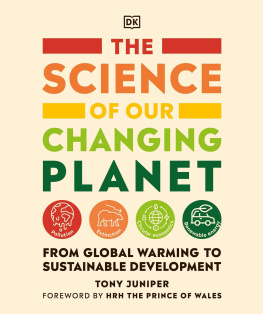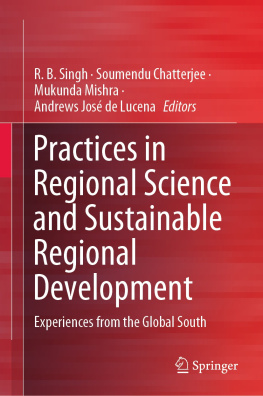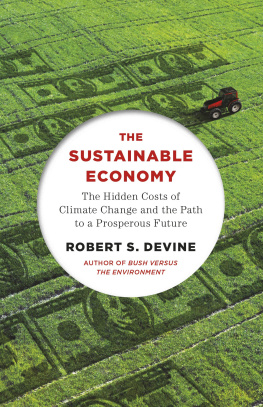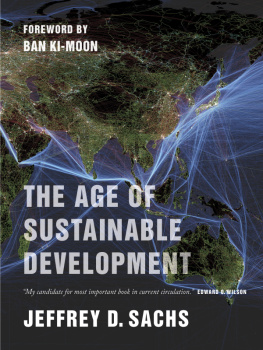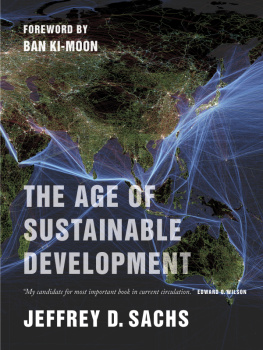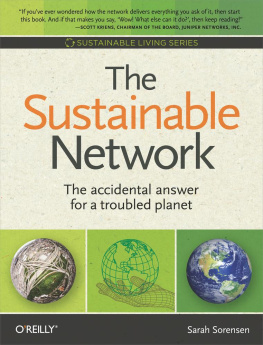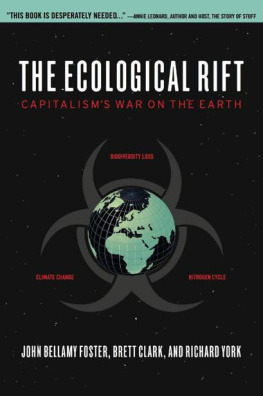Reforming Law and Economy for a Sustainable Earth
Paul Andersons book constitutes a comprehensive analysis of the dynamics of unsustainable development, revealing the underlying political economy and regulatory causes of intensifying global ecological unsustainability. It demonstrates considerable scholarship and a firm grasp of a wide variety of different social scientific approaches, debates, disciplinary perspectives and schools of thinking. It also, thankfully, provides some pertinent sources of hope in terms of the conditions and possibilities for effective global ecological governance in what is often a darkening field of social scientific analysis of the contemporary human condition in relation to our ecocidal treatment of the planet.
John Barry, Queens University Belfast, UK
Paul Anderson exposes the roulette wheel on which our sustainability bets are now placed. His analysis of this policy-masquerade of pricing is sharp and cuts deep. His message is to the point; we need an institutional convergence on good governance rather than just more and more gambling to survive.
Aubrey Meyer, Co-founder of Global Commons Institute.
Few concerns preoccupy contemporary progressive thought as much as the issue of how to achieve a sustainable human society. The problems impeding this goal include those of how to arrest induced global environmental change (GEC), persistent disagreements about the contribution of economic activities to GEC and further differences in views on how these activities can be reformed in order to reduce the rate of change and thus to mitigate threats to much life on Earth.
Reforming Law and Economy for a Sustainable Earth aims to help resolve these problems in two ways. Since addressing GEC will require global coordination, the book first clarifies the conditions necessary to achieve this effectively. Paul Anderson explores these conditions with the aid of a sustained analysis of key concepts in influential disciplines, particularly in social and political theory and law, relating to the transition to a sustainable economy. Second, Anderson tackles the problem of how to arrest GEC by incisively evaluating two leading theoretical positions in terms of their capacity to support the conditions required for effective global coordination. From this basis, the book offers an extensive critique of the idea that global environmental problems can be solved within the framework of global capitalism. It also critically reviews and advances the proposition that global sustainability can be achieved only by changing the capitalist form of organizing the economy.
Enriched by a genuinely interdisciplinary approach, the originality of Reforming Law and Economy for a Sustainable Earth lies in the way it combines a rigorous analysis of the requirements for global sustainability with decisive conclusions as to what are, and what are not, viable means of fulfilling those requirements. The book advances research on sustainability within key disciplines, among them political theory, law and social science, by offering a timely and insightful statement about the global environmental predicament in the 21st century.
Paul Andersons work combines philosophy, law and ecology to address environmental and other pressing public concerns. A research fellow in the School of Law at the University of Warwick, his current work examines prospects of democratising key domestic and international structures of governance.
Environmental Politics / Routledge Research in Environmental Politics
Edited by Steve Vanderheiden, University of Colorado at Boulder.
Over recent years environmental politics has moved from a peripheral interest to a central concern within the discipline of politics. This series aims to reinforce this trend through the publication of books that investigate the nature of contemporary environmental politics and show the centrality of environmental politics to the study of politics per se. The series understands politics in a broad sense and books will focus on mainstream issues such as the policy process and new social movements as well as emerging areas such as cultural politics and political economy. Books in the series will analyse contemporary political practices with regards to the environment and/or explore possible future directions for the greening of contemporary politics. The series will be of interest not only to academics and students working in the environmental field, but will also demand to be read within the broader discipline.
The series consists of two strands:
Environmental Politics addresses the needs of students and teachers, and the titles will be published in paperback and hardback. Titles include:
Global Warming and Global Politics
Matthew Paterson
Politics and the Environment
James Connelly & Graham Smith
International Relations Theory and Ecological Thought
Towards Synthesis Eric Laferrire & Peter Stoett
Planning Sustainability
Edited by Michael Kenny & James Meadowcroft
Deliberative Democracy and the Environment
Graham Smith
EU Enlargement and the Environment
Institutional change and environmental policy in Central and Eastern Europe
Edited by JoAnn Carmin and Stacy D. VanDeveer
The Crisis of Global Environmental Governance
Towards a new political economy of sustainability
Edited by Jacob Park, Ken Conca and Matthias Finger
Routledge Research in Environmental Politics presents innovative new research intended for high-level specialist readership. These titles are published in hardback only and include:
For a full list of titles in this series, please visit www.routledge.com
9 Security and Climate Change
International relations and the limits of realism
Mark J. Lacy
10 The Environment and International Politics
International fisheries, Heidegger and social method
Hakan Seckinelgin
11 Postmodern Climate Change
Leigh Glover
12 Contemporary Environmental Politics
From margins to mainstream
Edited by Piers H.G. Stephens, with John Barry and Andrew Dobson
13 Sustainable Consumption, Ecology and Fair Trade
Edited by Edwin Zacca
14 Environmental Governance in China
Edited by Neil Carter and Arthur P. J. Mol
15 Global Justice and Neoliberal Environmental Governance
Ethics, sustainable development and international cooperation
Chukwumerije Okereke
16 The Politics of Unsustainability
Eco-politics in the post-ecologist era
Ingolfur Blhdorn and Ian Welsh
17 International Organizations in Global Environmental Governance
Edited by Frank Biermann, Bernd Siebenhner and Anna Schreygg
18 Regulation Theory and Sustainable Development
Business leaders and ecological modernisation
Corinne Gendron
19 International Environmental Agreements
An introduction
Edited by Steinar Andresen, Elin Lerum Boasson and Geir Hnneland
20 The Origins of Energy and Environmental Policy in Europe
The Beginnings of a European Environmental Conscience
Thomas C. Hoerber
21 Governing Social Ecological Change
Long-term policies
Edited by Bernd Siebenhner, Marlen Arnold, Klaus Eisenack, and Klaus Jacob
22 Reforming Law and Economy for a Sustainable Earth
Critical Thought for Turbulent Times
Paul Anderson

